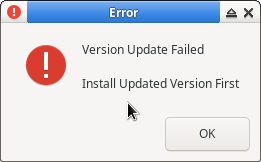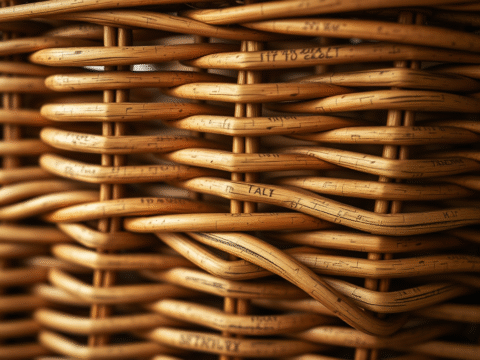I’ve hit a weird combination of an overall writer’s block and what I can only describe as a … research block. “What on earth is a ‘research block’?”, I can hear you questioning. [Ok, maybe you’re not questioning it, but humor me here, all right?]
The vast majority of the story of Tewei is spent down on the surface of the planet itself, living with the main focus – the Neradaka Tribe. [I’m still not 100% sure that “tribe” is the correct terminology, but until I get any sense of what a better term might be, I’m sticking with it.]
Given the story is happening in and around the Neradaka, I want to present as “realistic” a view of what that life is like for (potential?) readers.
Building The Neradaka
A significant amount of “off-writing” time is being spent by me on trying to “construct” the Neradaka. There’s some fairly detailed levels of fine-tuning I’m trying to get to, because there are several built-in contradictions for the Neradaka.
Warning – what follows will possibly be massive spoilers for the major twist of the story (unless you’ve already read the source short story), so if you really want to be surprised – don’t keep reading.
So What Are The Neradaka?
As I’ve described to others in attempting to give a sense of what’s going on here (without entirely giving the game away), the Neradaka are:
A late Neolithic (Stone Age) / cusp-of-Bronze Age society. However, there are members of the society (the leaders) who have knowledge of modern science and technologies. That knowledge is used to allow the best / most efficient use of the technologies available to the society as a whole. In other words, they know everything “we” know now about, say, agriculture and preventing soil depletion, but nothing beyond hand or animal labor is used in actual agricultural production.
Basically, this is a society which is being … “forcibly” repressed to stay at the very late Stone Age level of technology (so no real metal usage, etc), but they have guidance in using their existing tech the best ways possible.
You Said Something About Research?
One of my younger son’s high school history teachers (from his first year) holds a PhD in Anthropology and she has been utterly invaluable in helping me gain an understanding of what this sort of society would look like (as well as reminding me, repeatedly, of just how much I’m “breaking” what would normally happen). This enabled me to start building a good mental picture and putting that picture into words.
But there’s more than just overall structure-of-society in painting this “word picture”. While there are countless small tasks involved in staying alive in a situation like that, there are, to my mind at least, three big areas where I think it makes sense to show much more of what’s actually going on – to convey the level of hardship. These are:
- Agriculture – specifically farming / fieldwork
- Hunting
- Tanning (turning animal hides into leather)
Why Just Those Three?
I’m sure there is immense research that could be done (by me) into things like making pottery and building dwellings out of logs and what-not. But, at the same time, I don’t necessarily see those as being tasks that are happening on a daily / seasonal / annual cycle. Yes, pots and such will break and need to be replaced, but there isn’t going to be the sort of … communal … effort involved in them as there is (to my mind) in the above three. Let me delve deeper into them…
Agriculture
I do not have a “green thumb”. I also don’t have knowledge of, nor experience with, doing farming – taking an open plot of land, making it generate a field of some crop, then collecting that crop and making it into “food”. I am aware there is a vast amount of effort involved and, indeed, agriculture is often considered one of the main elements of “civilization” – not needing to go where the animals are, but, instead, being able to make your own food.
While I’m aware of the sense of “agriculture” also including the cultivation of animals for food (not just for labor), I’ve placed a burden (on myself) by setting my main beasts-of-burden up as tasting horribly – they’re good for working in the fields, but they’re not something you want to roast over a fire and eat.
Which brings me to…
Hunting
Purely for story-telling purposes, I find myself enamored of the idea of a sort of … “collective hunt” – towards (or after the end of) the harvest, most of the males go off to hunt from a nearby migratory herd, collecting many animals. These animals then are turned into, of course, “meat” for a festival and also preserved for later consumption (smoking / salting / etc). Yes, there will be other times when tribe members go to hunt, but nothing quite the same as the tribal hunting done at this time. Plus, those smaller hunts are done more individually.
Now that they’ve got all those dead animals, an ultra-low technology society will absolutely use every part of an animal that they can – not just the meat. The bones will be used for tools or also preserved for later use (for soups), but there’s more to an animal than just what’s on the inside.
And that leads to …
Tanning
Right – what’s on the “outside” is also important… specifically, the animal hides. Those need to also be used and animal hides have pretty much always been used by turning them into furs and leather. I’m less concerned with the “fur” part (although I’m sure I’ll need to be at some point) than I am with the “leather” part.
Nowadays, we (collectively) don’t really think too much about where any of the leather for our leather products came from, but it all started out as the skin of a dead animal … which underwent a process called “tanning” (typically done at a “tannery”) to convert the skin into leather. I know absolutely nothing about that process, but I want to be able to present it to readers.
What’s the Goal?
My ultimate intent here is to be able to present a view of life on Tewei that is, as I said, realistic (read: “believable”) enough to allow readers to suspend their disbelief. Part of that, for me, is also demonstrating just how much work is involved in living there. Yes, I realize this may demonstrate a certain level of hubris on my part in thinking I’ll be able to do any sense of justice to this, but … I want to try. [Plus – to be completely honest – I have to find my word-count somewhere, right?]





